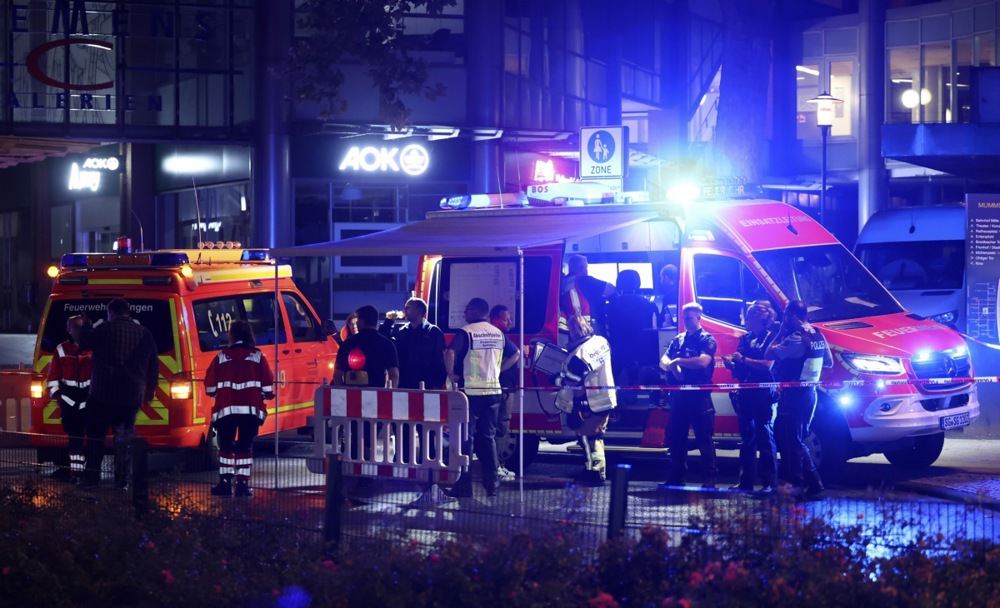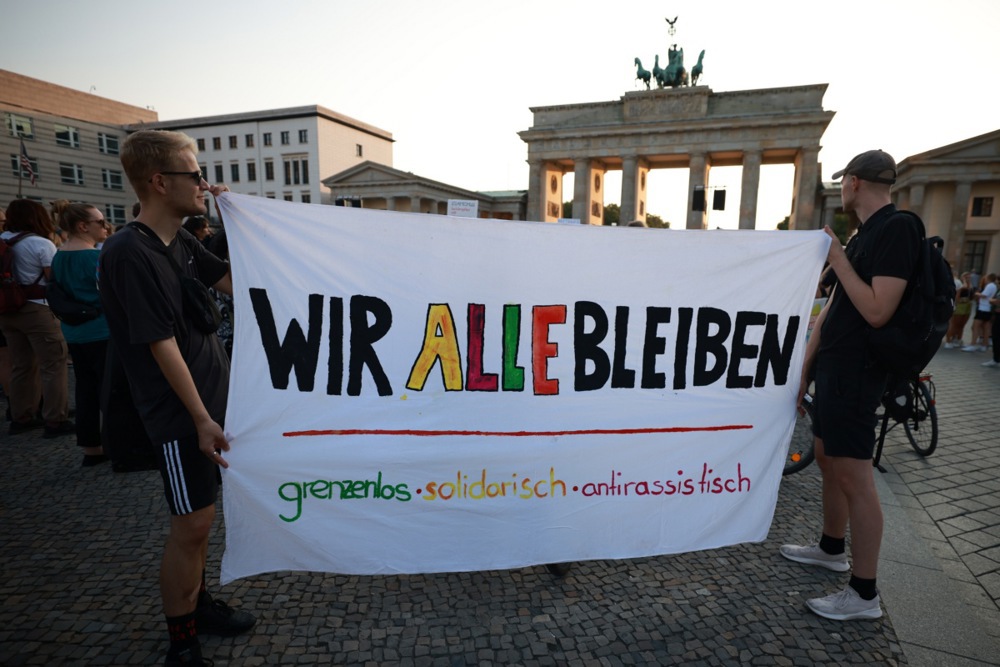More than half of all recorded physical attacks on politicians in Germany have been against those from the Alternative for Germany (AfD) party, newly released data shows.
In the first half of 2024, 84 violent attacks were made against German politicians, a sharp rise compared to 2023 when there were 23, according to the German government on October 1 in reply to a question from Martin Hess, a Bundestag MP with the AfD.
AfD politicians were most often targeted in those assaults — 48 times out of the 84 cases, the figures seen by Brussels Signal disclosed.

Second in line were the Greens, targeted on 18 occasions, followed by Christian Democrats (CDU/CSU) who were attacked six times, Die Linke politicians five times and Liberals not at all.
The main perpetrators of the violence were reportedly of the hard Left, responsible for 41 attacks against AfD politicians and one against a CDU MP.
Nine attacks were attributed to members of the radical Right — five against Green politicians, three against Die Linke and one against a Social Democratic Party (SPD) representative.
Next to political ideology, there were also categories termed “foreign ideology” and “religious ideology,” though the police registered zero attacks as aligning with either motive. A final category labelled “others” encompassed 24 offences.
In 2023, AfD politicians were also the main targets of political violence, with 18 of the 23 attacks having been directed against them.
Most attacks apparently came from left-wing activists, with 13 against AfD politicians committed by left-wing radicals and five by suspects to whom the authorities did not assign a specific ideology.
In the first half of this year, the “Joint Extremism and Terrorism Defence Centre for Combating Right-Wing Extremism/Terrorism,” operated by the police and intelligence services, handled eight cases involving attacks or planned attacks on party institutions or their representatives.
During this period, the corresponding “Defence Centre for Combating Left-Wing Extremism/Terrorism” addressed nine cases of attacks on party institutions or representatives of parties represented in the Bundestag.
In reaction to the government statistics, Hess said on X: “These attacks, assaults, and acts of vandalism are not minor offences. Through such actions, enemies of our liberal-democratic order attempt to exert unacceptable influence on democratic processes, distorting political discourse in a manner aligned with their anti-state agenda.”
“The main target of radical left-wing violence is once again the AfD, with the party being disproportionately affected in this regard.”
“This highlights the consequences of downplaying left-wing extremism, coupled with the persistent defamation, stigmatisation, and dehumanisation of the AfD by established parties,” he said.
“Experts are now warning of further escalations in left-wing violence, which could even result in fatalities. This is utterly unacceptable and must be met with a strict zero-tolerance strategy.”
“Non-violence in political debate is an essential prerequisite for a functioning democracy. Therefore, the state must finally take decisive action against all forms of extremism and can no longer afford to turn a blind eye to left-wing extremism,” the AfD MP concluded.
Hess also received relevant figures regarding non-violent crimes.
The police registered more than 10,000 politically motivated (non-violent) crimes, targeting party representatives, party offices and election posters.
Most of these attacks were aimed at the Greens, with the AfD second-most affected.
The most frequently mentioned offences were “defamation and defamation against persons of political life.”
During the first half of 2024, 394 crimes were reported with the target being “party buildings/party facilities.. Of those, 116 were directed at the Greens, 111 at the AfD and 76 at the Social Democratic Party (SPD).
Election posters were popular targets with 7,763 damaged. 2,463 belonging to the Greens, 1,900 AfD posters and 1,882 representing the SPD.
All the numbers were produced by the national police force, which recorded the incidents as crimes, regardless of whether there were subsequent convictions.






